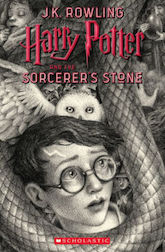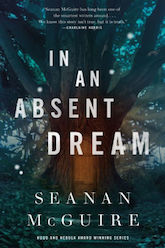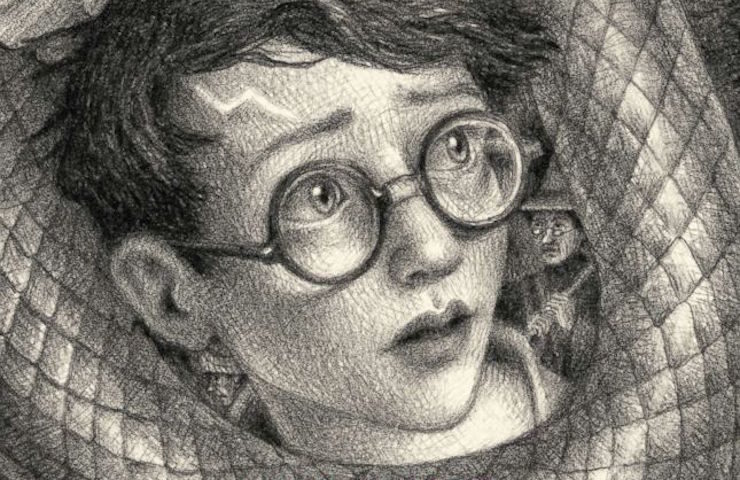This year, Harry Potter and the Sorcerer’s Stone is celebrating the 20th anniversary of the U.S. publication and even now, two decades later, there are certain debates that continue to rage like fiendfyre throughout the fandom: Who is worse, Umbridge or Voldemort? Is Snape really good or evil? Which Deathly Hallows would you choose? The fact that we still continue to feel so passionately about these topics speaks to the breadth and complexity of the wonderful world that J.K. Rowling created. For me, there is one particular question that I can’t stop asking, and it is, admittedly, a rather controversial one: did the Sorting Hat put Harry in the wrong house?
Like any fan, I have a certain personal stake in this question. From the first moment I opened a copy of Harry Potter and the Sorcerer’s Stone in 2001, I knew I was a Slytherin. It was the summer after my freshman year of college and I was babysitting my cousin’s children. In an effort to keep myself entertained while the kids were asleep upstairs, I perused the available books and plucked the title off the shelf, skeptical that this kids book was really as good as everyone claimed.
A few hours later, my cousin and her husband returned home and I begged them to let me borrow it so I could finish reading. The next day, after staying up into the wee hours to find out what happened, I went to the public library in my hometown for the second, third, and fourth books—all that was published at the time—and burned through them within a week. I was as hooked as Severus Snape’s nose.
Buy the Book


Harry Potter and the Sorcerer’s Stone
In the nearly twenty years since, I’ve never doubted my house, and every online test I’ve taken over the past two decades always confirms this conclusion. Always. When I go out, I proudly sport my green and silver, despite knowing how the rest of the wizarding world views us. Tell another Potter fan you’re a Slytherin and there is an unmistakable shift in their demeanor, which is really unfair—especially because I firmly believe the Sorting Hat made a mistake when it came to the Chosen One.
The Sorting Hat, as we know, stubbornly refuses to admit that it has ever placed a student in the incorrect house. Still, we have to consider how close it came to putting Harry in Slytherin and that, in Harry Potter and the Chamber of Secrets, the Sorting Hat doubles down, saying it was right: Harry “would have done well in Slytherin.” True, Harry unknowingly carried a piece of Voldemort’s soul inside of him—but could that small fragment really explain all of the times Harry exhibited Slytherin traits throughout the series?
I’m not willing to buy the idea that the Sorting Hat is infallible, although perhaps that has more to do with plot than personality. For the sake of the story, I understand that it was perhaps necessary to place Harry, Ron, and Hermione in the same house… but, c’mon: I think we can all agree Hermione really should have been in Ravenclaw.
Perhaps the Sorting Hat never makes a mistake—but I believe J.K. Rowling did, and so I present five reasons why I believe Harry Potter should have been sorted into Slytherin:
He is distantly related to Voldemort
As we learned in Deathly Hallows, both Voldemort and Harry are descendants of the Peverell brothers making them (very) distantly related. Then again, as we also learn throughout the books, many wizarding families tend to intermarry, so chances are Harry is related in some way to nearly every wizard he meets.
When it comes to his ancestry, what is most striking is not Harry’s individual lineage, but the magical artifact attributed to each Peverell brother. Harry descends from Ignotus Peverell, the owner of the Invisibility Cloak. An invisibility cloak that allowed Ignotus to cheat Death through deceit. An invisibility cloak that was passed down through the generations to Harry, who, as we will see, uses it for some of his more… cunning enterprises.
He is ambitious
Like Harry, readers are taught to dislike Slytherins because our ambition is seen as a negative trait. J.K. Rowling paints Slytherins as power-hungry; ambitious only in superficial terms: seeking fame, money, glory, etc. This is a flawed perspective, of course: Hermione’s desire for top grades in all of her classes is ambitious, but her drive isn’t seen as a bad thing the way it is when Slytherins exhibit a similar level of determination.
It is that level of determination that really elevates Harry to the role of Slytherin: in every book, he sets himself on a path to reach his end goal regardless of cost. He is a kid who knows what he wants and will do whatever it takes to get it: reaching the Sorcerer’s Stone before Snape Quirrell does; getting into the Chamber of Secrets to save Ginny; breaking into Gringotts; infiltrating the Ministry of Magic…twice.
That said, there is a bit of that power-hungry nature in the mix because despite all of his arguments to the contrary, Harry does have a bit of a Hero Complex. Or, as Hermione puts it in Order of the Phoenix, “Don’t you think you’ve got a bit of a— a— saving-people-thing?”
Even when the very level-headed—and correct, mind you—Hermione is telling Harry that chances are, Sirius is safe and Voldemort is merely exploiting Harry’s need to be recognized as a hero, he refuses to listen: determined yet again that he and he alone knows how to save the day.
He is cunning
Ah, cunning. The act—or, in some cases, the art—of using deceit to achieve one’s ends. Some will argue that Harry’s veiled lies and mild manipulations are forgivable because he was often doing it for, what he believed was, the greater good. But the definition doesn’t take end goal into account. This goes back to that determination thing: Harry is a kid who knows what he wants, and sometimes he plays dirty to get it.
Buy the Book


In An Absent Dream
For example, that time in Sorcerer’s Stone when Harry, desperate to get into the Restricted Section of the library, uses his Invisibility Cloak. Really, anytime Harry used his Invisibility Cloak: sneaking into Hogsmeade; spying on Draco on the Hogwarts Express (seriously, he deserved that broken nose); and every other time he used it to be somewhere he wasn’t supposed to be, often clandestinely gaining valuable information in the process.
Harry’s acts of deception go beyond just the cloak he inherited from Ignotus: In Half-Blood Prince, Harry surreptitiously takes advantage of Snape’s notes to impress Slughorn, and let’s not forget how much Polyjuice Potion was consumed over the course of seven books.
Then there is that time in Deathly Hallows when Griphook says he will help the trio break into Gringotts in exchange for the sword of Gryffindor. Harry agrees, conveniently leaving out the part where he is being “careful to avoid telling [Griphook] exactly when he can have it.” When Hermione points out that it could take years before all the Horcruxes are destroyed, Harry says Griphook doesn’t need to know that part.
Yeah. Super noble of you there, Harry.
He has a certain disregard for the rules
Oh, your guardians didn’t give you permission to go to Hogsmeade so you decide you’re just going to don that Invisibility Cloak of yours and sneak in? Okay then. Plus all of the times in the Restricted Section, the third floor corridor, the being out of bed at night…
Did I mention he infiltrated the Ministry of Magic twice? First because he believed Voldemort has kidnapped Sirius in Order of the Phoenix and later, in Deathly Hallows, when he needed to steal the locket from Umbridge.
Merlin’s beard, no wonder there was a moment where Dumbledore thought Harry had figured out how to get around the Goblet of Fire’s Age Line.
His courage is questionable
One of Gryffindor’s key traits is bravery, but there is a difference between being brave and acting impulsively in the face of fear. Harry skews more towards the latter, and his impulsiveness ties in closely with his determined need to be the hero, running recklessly into dangerous situations in order to prove himself. He’s so foolhardy in his actions that he often ends up being wrong: Snape wasn’t trying to steal the stone; Dumbledore wasn’t really going to let Gabrielle drown in the Second Task; Voldemort didn’t really kidnap Sirius, etc.
When the Sorting Hat considers putting Harry into Slytherin, it was really presenting Harry with an opportunity. Allowing himself to be sorted into Slytherin—the house everyone hates, the house with the negative reputation—would have been the more courageous choice. He had the chance to buck tradition and centuries-long assumptions about this particular house.
If we’ve learned anything from Neville Longbottom, it’s that sometimes true bravery looks like boldly challenging the status quo. Instead, by begging the hat not to put him in Slytherin, Harry let his prejudices get in the way.
Dumbledore tells Harry that “it is our choices… that show what we truly are” and if that’s true, Harry took the easy choice—which means he might not live up to the ideal of the brave Gryffindor lion after all.
Jill Grunenwald is an INTJ Slytherin librarian and author of the memoir Running With a Police Escort: Tales from the Back of the Pack. She lives in Cleveland, where she is a staff librarian at OverDrive and co-host of the Professional Book Nerds podcast. Her three favorite words are All Day Breakfast. Jill can be found on Twitter.










